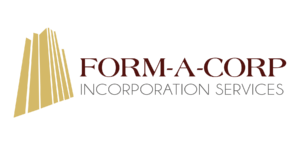1. What is a Professional Corporation or Professional LLC?
2. How is a Professional Corporation or Professional LLC formed?
3. What is an appropriate name ending for a Professional Corporation or Professional LLC?
4. How is a Professional Corporation taxed?
5. Who can be a shareholder or director in a Professional Corporation?
6.Do any states not permit the use of a Professional entity?
1. What is a Professional Corporation or Professional LLC?
Professional corporations and professional limited liability companies (PLLC’s) are corporations and limited liability companies organized for the purpose of providing professional services. Usually, professions where the state requires a license to provide services, such as a doctor, chiropractor, lawyer, accountant, architect, or engineer, require the formation of a professional corporations or PLLC.
2. How is a Professional Corporation or Professional LLC formed?
Articles of incorporation for a professional corporation and articles or organization for a PLLC, are similar to those of standard corporations and LLCs. However, with professional entities, the proper state licensing body must often approve the formation documents before these documents can be filed with the secretary of state.
Further, the articles typically must contain the signature of a licensed professional as the incorporator, and that person’s license number, or a certified copy of the license may be necessary as part of the filing requirements. As a result, the filing time for professional entities may be longer than the filing time for standard business entities.
3. What is an appropriate name ending for a Professional Corporation or Professional LLC?
A professional corporation usually must end with the designation Professional Corporation or the abbreviation P.C. The professional LLC uses the designation Professional Limited Liability Company or PLLC.
4. How is a Professional Corporation taxed?
A professional corporation is taxed like a C corporation (unless they make the S corporation election). However, some professional corporations do not have the advantage of graduated corporate federal income tax rates. Professional corporations that are “qualified personal service corporations” pay a flat federal income tax rate of 35 percent. “Qualified personal service corporations” provide services in the fields of health, law, engineering, architecture, accounting, actuarial science, or consulting.
Professional corporations are allowed to file for S Corporation status, this election allows for the entity to have pass-through tax treatment. With pass-through taxation, the income to the entity is not taxed at the entity level; however; the entity does complete a tax return. The income or loss as shown on this return is “passed through” the business entity to the individual shareholders or interest holders, and is reported on their individual tax returns.
5. Who can be a shareholder or director in a Professional Corporation?
Many states restrict who may be a shareholder or a director of a professional corporation. The stock must be owned by either: employees performing the professional services, retired employees who had performed such services, the estate of someone who had performed such services, or someone who inherited the stock from a deceased employee who had performed such services (but only for two years after the date of death).
Note, in some states only licensed practitioners of the specific service that the corporation provides may own stock in the corporation and serve on the board of directors. Other states require at least 50% of the shareholders and directors to be licensed professionals.
6.Do any states not permit the use of a Professional entity?
The state of California does not permit limited liability companies to be formed to provide professional services. California does, however, allow the formation of professional corporations.



